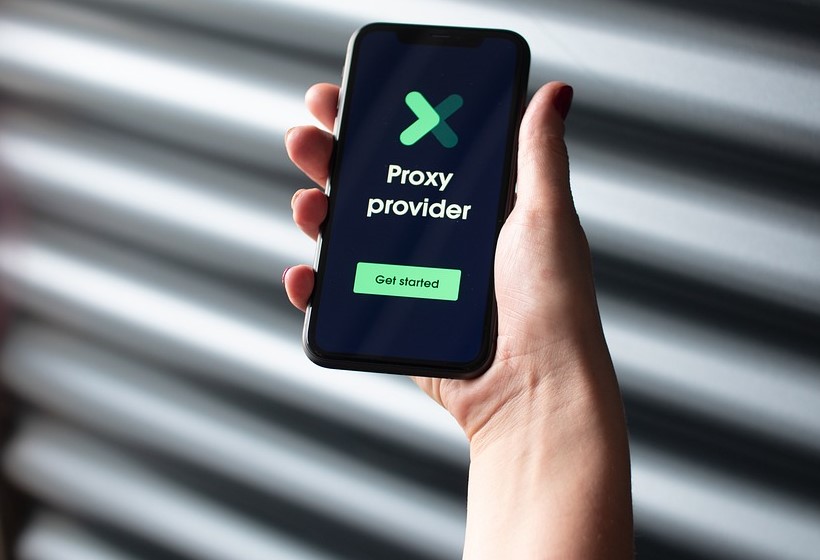
The iPhone is widely regarded as one of the best and safest mobile phones available on the market. With a closed-source operating system and other security features that prioritize user safety and privacy, it remains the go-to gadget for over a billion smartphone users all over the world. However, while it outperforms its competitors in many different security categories, it is not guaranteed maximum digital security. Malware attacks, online tracking, and lack of technical knowledge are the main factors that still endanger iPhone users in 2023.
Despite sophisticated software features that protect the user, even the Apple-initiated anti-tracking features cannot prevent all of the risks that wait for you online. To stay away from trouble, tech-savvy users understand the functionality of all security settings and employ internet privacy tools to seal away any vulnerabilities that could be exploited by online trackers and cybercriminals.
In the search for a solution that works for as many people as possible, simplicity is the key. This is where proxies come to save the day. Proxy servers are extra stops that change the profile of your connection by assigning it a different identity. They are easy to set up and offer instant results – the recipient server sees your incoming data packets with a new IP address.
Proxy servers not only protect but also expand the capabilities of your browsing session. With the services of top proxy providers, you can choose from millions of addresses in any country, which will allow you to see local ads, bypass geographical restrictions, and see the same version of the internet. With a quick set-up, you can keep swapping identities and locations until you find the option that suits your needs.
In this article we address the benefits of proxy servers and why you should run them for web connections on your iPhone. First, we will explain the simple proxy set-up process for your iOS device and then go to other types of proxies and the benefits they bring to the table. For example, most proxy providers offer datacenter and residential proxies, but top industry providers include 5g mobile proxies in their list of services. Smartproxy is one of the best suppliers that includes informative blog articles about their products. Check them out to learn more about 5g mobile proxies or any other services that pique your interest.
How to set up a proxy server on iPhone
Connecting to a proxy server on an iPhone is very easy. Here is what you need to do:
- Go to settings
- Open your Wi-Fi configurations
- Click on your current Wi-Fi network
- Scroll to the end of the page until you find HTTP proxy settings
- Click on Configure Proxy
- Choose a manual configuration
- Enter the proxy server IP and other settings provided by your supplier
- That’s it! You can now test the address on whatismyip.com to make sure the connection is successful.
Once everything is done, you can enjoy a private browsing experience. Still, if you want to avoid tracking at all costs, do not connect to social media accounts while using a proxy IP, as it beats the purpose of getting the address if it’s instantly exposed to networks that are infamous for aggressive data collection and user surveillance.
Proxy server types and their benefits
Some providers offer specialized proxy servers that are altered to bring the most benefits for specific use cases. Still, at their core, these proxies can be separated into three foundational categories: residential proxies, mobile proxies, and datacenter servers.
Datacenter proxies are the least expensive option, and their connection is the fastest. They are well-suited for quick and personal browsing sessions that you want to keep private or if you connect to a proxy to bypass geo blocking. For company networks, datacenter IPs do not provide enough privacy. These addresses come from hardware in specialized data center facilities. They are structured in bulk, and have no connection to internet service suppliers. The recipient of your data packets can pick up on these giveaways and block your connection.
Residential proxies are the better alternative: while more expensive, most providers have massive server pools with millions of available servers. Their connections are nearly impossible to separate from real user traffic, which makes them perfect for web scraping, social media management, and automated purchases of limited-edition goods.
Mobile proxies are similar to residential IPs, but instead of using a fixed network, they get their addresses from the mobile operator. With them, you have more control over mobile apps and dependent services that need an internet connection and location information. You can test different access points without endangering your private data.
Conclusion
iPhones are very safe phones with plenty of security features, but they will not prevent online tracking if the user willingly gives up their data. Residential and mobile proxies give your web connection a new identity that shields your IP address and prevents tracking from malicious parties. If you don’t feel safe browsing the web on your iPhone, proxy servers will help you shake away the feeling of being watched.